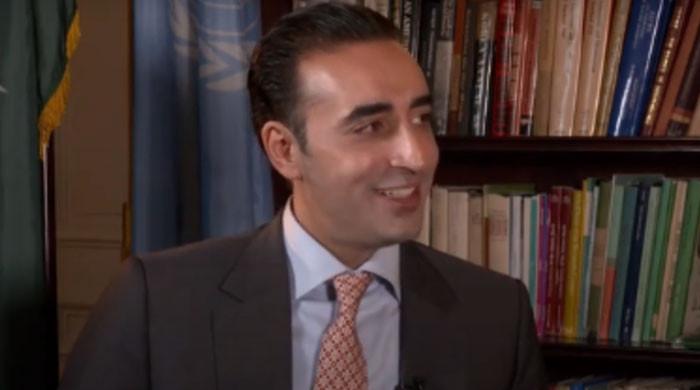Bilawal Stresses Dialogue for Peace, Kashmir Resolution
Former Foreign Minister and PPP Chairman Bilawal Bhutto-Zardari has asserted that sustainable peace hinges on discourse and diplomatic engagement, emphasizing the crucial need to resolve the Kashmir issue for a lasting truce.
Bilawal is currently in New York, US, leading a high-level parliamentary delegation of nine members for a two-day visit. The purpose is to articulate Pakistan’s perspective on the recent military situation with India and to counter New Delhi’s stance on the global stage.
The parliamentary delegation includes prominent figures such as Hina Rabbani Khar, Sherry Rehman, Dr. Musadik Malik, Khurram Dastgir Khan, Jalil Abbas Jilani, Tehmina Janjua, Bushra Anjum Butt, and Syed Faisal Subzwari.
In a conversation with CCTV News of China, Bilawal stated that India initiated unlawful and independent strikes across the border following the recent incident in Pahalgam. He advocated for unbiased investigations and reinvigorated diplomatic actions to secure enduring peace in the region.
“Following the Pahalgam incident, we proposed a fair investigation,” he stated. “However, India turned it down.”
Bilawal underscored the necessity of a permanent, joint investigative body between India and Pakistan to examine not only the Pahalgam incident but also all terror-related events affecting both nations.
“There are numerous instances where India has been implicated in assaults within Pakistan, notably in Khyber Pakhtunkhwa and Balochistan,” he noted.
“A neutral platform could facilitate both parties in seeking justice and preventing future bloodshed.”
Bilawal reaffirmed Pakistan’s dedication to peace, stating that any military reaction was an act of self-defense. He claimed that Pakistan downed six Indian aircraft during the conflict, an admission India took a month to make.
“The Indian government took a month to acknowledge that we shot down their planes,” he stated.
He voiced significant apprehension over India’s independent violation of the Indus Waters Treaty, deeming it a contravention of international regulations. “Neither party can unilaterally withdraw from the treaty,” he clarified. “Any modifications must be mutually agreed upon through discussion.”
However, discussions pertaining to the treaty remain gridlocked.
Bilawal emphasized Kashmir’s central role in the conflict, which he believes has once again gained global attention due to the escalation between Pakistan and India.
“If we genuinely seek to eradicate terrorism, we must tackle its fundamental causes. Kashmir is at the core of this,” he stated, adding that the issue has once more garnered global interest and cannot be disregarded.
He appealed to global powers to intervene, saying: “The UN still has a crucial role to fulfill. The Secretary-General played a constructive role during the crisis. Now, we require a similar endeavor to ensure an equitable and enduring peace.”
“India is the only country expressing unwillingness to engage in dialogue,” Bilawal noted, adding that Pakistan is endeavoring to involve the international community to facilitate peace, which must encompass addressing the Kashmir issue, the Indus Waters Treaty, and terrorism.



Comments (0)
No comments yet. Be the first to comment!
Leave a Comment